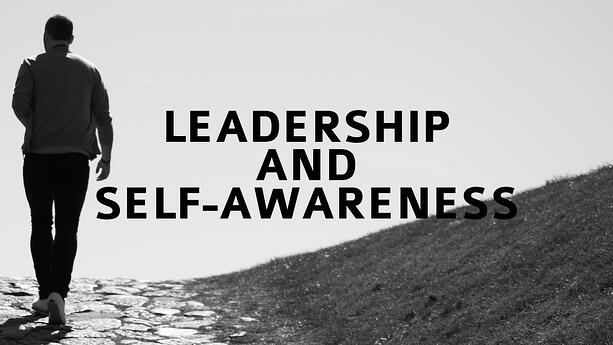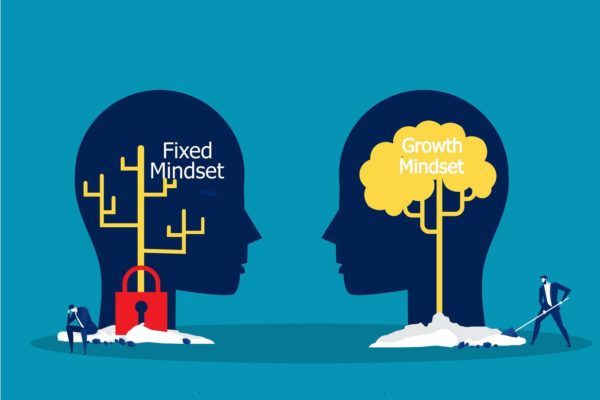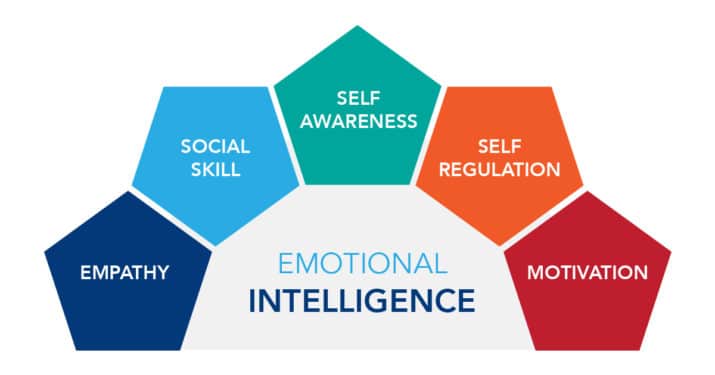Self-awareness is rarely talked about but is the most important requirement to be an exceptional leader. A leader with high self-awareness has a deep understanding of their character, values, morals, and principles.
Without this insight, it will be challenging to have awareness of others, which will make it difficult to lead authentically.
This article will highlight the importance of self-awareness in leadership, characteristics of both high and low self-awareness, and strategies for personal development.


What is Self-Awareness, and Why is it Important?
You must be self-aware to know who you are and what you value. This means overcoming any possible cognitive distortions and looking for the the objective truth about yourself.
A person can have both internal and external self-awareness. Additionally, a disconnect at either level of self-awareness can occur.
Internal Self-Awareness


Internal self-awareness is how we view our own strengths, weaknesses, morals, and values. In other words, internal self-awareness is our subjective view of ourselves.
For instance, leaders who are disconnected from their internal self-awareness don’t have a personal vision for their lives.
Unfortunately, these leaders may have a difficult time motivating employees toward the organizations’ vision.
External Self-Awareness
Conversely, external awareness is how others’ view us. Leaders who lack external awareness may know who they are, but it’s vastly different from how employees view them.
A great example comes from the TV show, The Office. Michael Scott is the manager and he’s convinced that his entire staff thinks he is hilarious. In reality, no one thinks he’s funny and Michael can’t pick up on the cues.


Surprisingly, having a balanced internal and external awareness of self and others affects almost every part of the business environment.
Researchers have found that self-awareness positively influences leadership competence, organizational performance, attitudes and behavior, and emotional intelligence.
Leaders must have high self-awareness to better understand themselves and those they lead. People who have high self-awareness develop higher levels of trust, rapport, communication, and productivity.
*It is important to note that employees exhibiting high/low self-awareness show nearly identical characteristics.
Six Characteristics of High Self-Awareness
High self-awareness positively influence personal development and effectiveness as a leader. The following five characteristics are common among high self-awareness leaders:
They know their strengths and weaknesses


Leaders with high self-awareness take the time to reflect and introspect. In other words, they identify their characteristics, morals, values, and goals, and communicate transparently among employees. They aren’t afraid of admitting their weaknesses and using them as an example for self-development.
Embrace a people-centered culture
These leaders care about their followers and ensure they always come first. Followers know that they can take risks and try new ideas because their leader will accept them even if they don’t work out.
Display empathy and emotional intelligence
Since leaders with high self-awareness know themselves, they can easily connect with others. They use emotional intelligence to pick up on emotional cues. They then tailor their message depending on who they are responding to.
Listen with intention
Leaders with high self-awareness use active listening skills to hear the words that are being said and any underlying messages. These leaders are perceptive and great at anticipating outcomes.
Communicate transparently
These leaders openly communicate about their thoughts, feelings, and intentions. They will also involve followers in their decision-making process and seek their opinions.
People with high self-awareness make better leaders and followers. Leaders with high self-awareness foster a healthy culture and work environment.
Conversely, low self-awareness is related to poor motivation, morale, communication, and higher dropout rates.
Six Characteristics of Low Self-Awareness
These leaders have the potential to damage their organization and the people they serve. Harvard Business Review listed six common characteristics of leaders who lack self-awareness:
They won’t listen/accept critical feedback
You will find yourself walking on eggshells with these types of leaders. If you say anything they don’t like, it will be used against you.
They can’t empathize with or take the perspective of others
You will find it difficult to have an authentic connection with these types of leaders. Their words say one thing, but their eyes and body says another. Somehow, you can tell these leaders don’t care or value you.
They have trouble reading the room and tailoring their message to their audience
Tailoring their messages is the last thing that comes to mind. These leaders don’t consider how their words make you feel; they just expect you to do your job.
They have an inflated opinion of their contributions and performance
You will often notice that these leaders are quick to accept full credit for the team’s work.
They are hurtful to others without realizing it
Passive aggressiveness and sarcasm are the primary languages of these leaders. They will sling spiteful comments during meetings and downplay your achievements to overplay their own.
They blame others for failures
If something goes wrong, these types of leaders are quick to blame the team.
If any of these characteristics sound familiar, it’s very likely that these leaders are oblivious to how their behavior impacts others.
Self-awareness isn’t usually considered a predictor of how well a leader does, but it can absolutely tell the difference between exceptional and poor leadership.
How to Improve Low Self-Awareness
Fortunately, self-awareness is a skill that can be learned. It just takes time and consistent practice.
Self-awareness means taking the time to figure out who you are. This may sound abstract, but it’s really just figuring out what your innate gifts are, any areas for opportunities, what your values are, character strengths, and what your vision looks like.


A great way to capture the insight you’ve learned about yourself is through writing. Journaling is an effective way to explore your inner world and is considered a creative outlet for processing emotions and developing self-awareness.
Before I start my work for the day, I’ve made it a daily habit to write down my thoughts. It’s a great way to a positive tone for the day while getting the creative juices flowing.
Additionally, there are countless exercises can help develop your self-awareness.
I offer a 25-day course on Udemy to learn how to become a more authentic leader by learning how to develop the four core characteristics: self-awareness, internalized moral perspective, balanced processing, and relational transparency.
The great thing about this course is that it comes with a workbook that has 20+ exercises for developing all four areas of authentic leadership, including self-awareness.
The two weeks on self-awareness and internalized moral perspective help you discover your strengths, areas of opportunities, emotional triggers, values, and morals. The course also guides you on how to integrate your insights into daily behaviors.
You can find the course here.
Conclusion
Having high self-awareness improves effective leadership, performance, positive attitudes and behaviors, and emotional intelligence.
Similarly, my research found that self-awareness (one of the four core characteristics of authentic leadership) positively influences employee well-being.
Not only does having higher self-awareness give you a more objective view of yourself, it helps you align that view with employees perceptions of you. This gives you a more objective view of yourself as a leader.
If you would like guidance on how to develop employee or leaders self-awareness, my 25 day course offers a comprehensive workbook that contains 20+ activities.
Bianca Cardenas, M.S., Ph.D., is a Fellow in Executive Assessment and Consulting with Leadership Worth Following. Dr. Bianca Cardenas empowers leaders to transcend competition by helping them unlock their people's potential.














